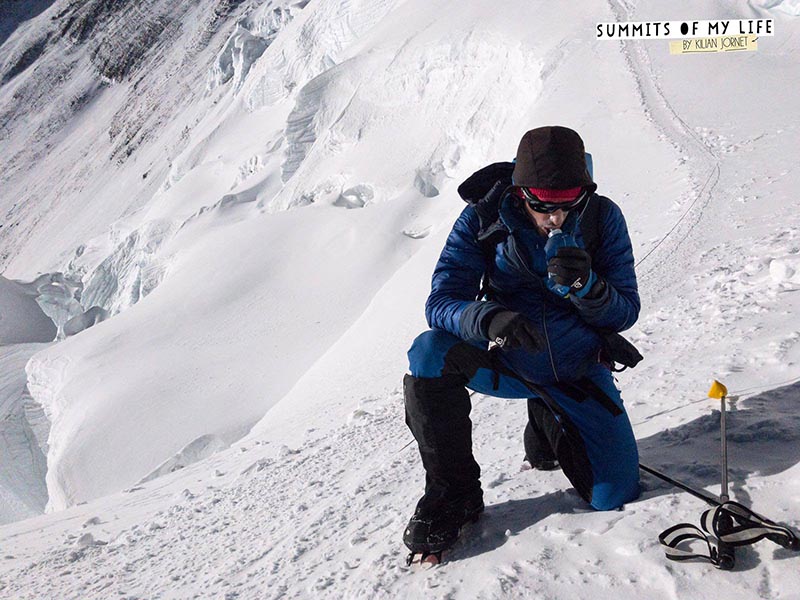Kilian Jornet scales Mt Everest in alpine style for speed record
KATHMANDU: Spanish climber Kilian Jornet scaled the world’s highest peak from Tibetan side in a single attempt without the help of bottled oxygen or fixed ropes.
The famed alpinist, who already set the speed record for ascending the Mt Kilimanjaro, Mt Aconcagua, Mt Denali, Matterhorn and Mt Mont Blanc, successfully reached the summit via the north face of the world’s highest mountain following the traditional route at midnight of 21st to 22nd May, according to a statement issued by the climber.
Jornet, one of the all-time great mountain runners, began the challenge at the Mt Everest Base Camp near the ancient Rombuk monastery (5,100 m) on May 20 at 10:00 pm (local time) while at 12:15 am on May 22, he started descending towards the Advanced Base Camp (6,500 m) from the summit point, the statement read. Jornet claimed that he stood atop the Mt Everest at midnight, in 26 hours after beginning the ascent from the base camp.
After returning to ABC in 38 hours at around 10:00 am on May 22, he explained, “Until I reached 7,700 m, I felt good and was doing according to my plan, but I experienced some stomach problem thereafter and had decided to move slowly to recover. However, I made it to the summit at midnight.”
Under the ‘Summits of My Life’ project, Jornet intended to complete the ascent in one go to set a new speed record (Fast Known Time in his parlance)
Over the past six years, Jornet has travelled around the world setting climbing records on the world’s most iconic mountains. He began on Mont Blanc in 2012 and since then has climbed mountains in Europe (Mont Blanc and Cervino), North America (Denali) and South America (Aconcagua).
The team had planned to travel to the Himalayas in autumn but, unable to obtain permits, decided to bring it forward to the spring season, as Jornet earlier explained: “This year will be different from 2016 as there will be more people in the base camp while last year we were alone. The reason for wanting to try it in August-September is that the temperatures are a little warmer and there is less risk of freezing. In spite of everything, the knowledge we acquired last year will prove vital in this expedition.”
Jornet further said, “We began this challenge together five years ago and with our values and our approach to the mountain we’ve got to this point. Although we don’t know what will happen, I’m clear about one thing: it’s not my Everest, but ours, everyone who has in one way or another contributed to making this project a reality.”






